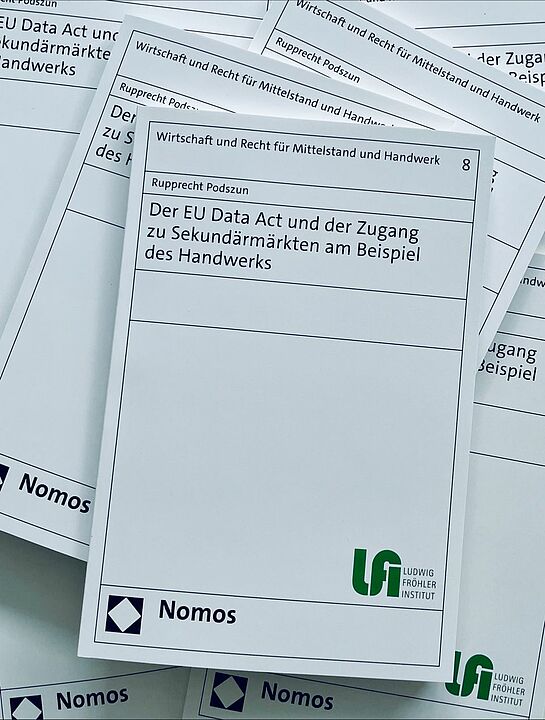Who gets access to the data collected by smart devices? In the Internet of Things, this question is giving rise to new commercial battles: only those who have access to data will be able to provide economic services in the future. The European Commission wants to provide clarity with the EU Data Act and has presented a draft regulation in 2022. Prof. Dr. Rupprecht Podszun, Director of the Institute for Competition Law at Heinrich-Heine-University in Düsseldorf, sheds light on the draft in the recently published study "Der EU Data Act und der Zugang zu Sekundärmärkten am Beispiel des Handwerks" (The EU Data Act and Access to Secondary Markets Using the Example of Craft Trades) and calls for a competition-oriented design of the EU Data Act. The study was also supported by Philipp Offergeld, Doctoral Researcher at the chair of Rupprecht Podszun.
In the study, concrete suggestions for improvement are being made, as the draft regulation in its current version does not satisfy the self-imposed goals of the European Commission. For craftsmen and service providers, the access issues are existential: if they are cut off from data access, they can no longer provide services to their customers in downstream markets - for example, for repair and maintenance. But it is not just a problem specific to this industry; access to data, tools and software is a key issue for the digital transformation of the economy. European companies are affected here both as previous holders and as potential interested parties of data sets, which is why the competitiveness of the European Union as a whole is at stake.
The work "Der EU Data Act und der Zugang zu Sekundärmärkten am Beispiel des Handwerks" (The EU Data Act and Access to Secondary Markets Using the Example of Craft Trades) was published in print and as an e-book by Nomos-Verlag in early 2023.


